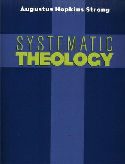Cambron – Mastering the Bible
Mastering the Bible
By Mark G. Cambron
HERMENEUTICS
Mastering the Bible by Mark Cambron is a tremendous work on Hermeneutics going through many principles used in order to correctly interpreting the Word of God, such as the principle of first mention, the principle of types, the principle of double reference, etc.
Table of Contents of Cambron – Mastering the Bible
Names and Titles of the Scriptures
The inspiration of the Scriptures
The Bible Student
The Dispensation Principle
The Covenant Principle
The Ethnic Division Principle
The Discrimination Principle
The Predictive Principle
The Application Principle
The Initiative Principle
The Consequence Principle
The Exhortation Principle
The Subsequent Mention Principle
The Human Willingness In Illumination Principle
The Divine Will In Revelation Principle
The First Mention Principle
The Progressive Revelation Principle
The Full Mention Principle
The Illustrative Principle
The Context Principle
The Agreement Principle
The Direct Statement Principle
The Recurrence In the Law of Repetition Principle
So-Called Contradictions
The Lord Presented Four Ways In the Old Testament
The Gap Principle
The Election Principle
The Three-fold Principle
The Principle of Synthesis or Literary Structure
The Numerical Principle
The Double Reference Principle
The Christo-Centric Principle
The Typical Principle
More Major Works on Bibliology
- Chinese Union Version – Classical Chinese 文 理和合本
- Douay-Rhiems Bible
- Darby Bible
- Complete Apostles’ Bible
- Young’s Literal Translation 1898
- Bible in Basic English (BBE)
- Concordant Literal Bible Version – CLV Scripture translation principles
- Complete Jewish Bible CBJ
- Reina Valera NT 1602 Biblia del Cántaro
- Word of Yahweh (WoY)
- Concordant Literal Bible Version – CLV Evaluation
- Institute for Scripture Research-The Scriptures Bible Version (Evaluation only)
Excerpt from the Chapter on Inspiration
1. It is more than human genius and human qualification. Inspirations are endowments from God. No man has been inspired to write since John finished the Book of Revelation.
2. It is more than illumination.
a. Illumination means the influence of the Holy Spirit which enables one to understand spiritual truth. Only yielded believers are illuminated.
b. Some are more yielded, and their illumination is greater, for God can work in them.
3. It is more than a revelation. The exposé of records: things revealed by God. Only God knew the record of the creation. Men of God have records of men’s lives, thus proving that the Bible is the Word of God; for when mere man is recording the life of men, he leaves out the bitter and bad. God doesn’t!
4. It literally means “God-breathed”. The Word is the breath of God in a person (chosen of Him) that inspired the person. Today God is breathing to man by means of the written Word. If the Bible is not what it claims to be, it cannot be a “good book”. It is the same in the case of our Lord. If Jesus wasn’t what He claimed to be, He couldn’t be a “good Man”. IF THE BIBLE IS NOT WHAT IT CLAIMS TO BE, THEN IT IS THE BIGGEST LIE EVER PRINTED.
Alone man is powerless to know God’s Word. “Knowing this first, that no prophecy of the Scripture is of any private interpretation. For the prophecy came not in old time by the will of man: but holy men of God spake as they were moved by the Holy Ghost” (II Peter 1:20, 21). Man needs the Holy Spirit to lead him and to interpret the Word. The same Spirit leads men, but no two are led alike. We believe in a full, complete, inspired-of-God-Bible. Not a partly inspired Bible, but ALL-inspired! One who says that the Bible contains some parts that are inspired means that the Bible contains some things that are not inspired, some falsehoods, etc. They are wrong!
More Works with Bibliology Tags
[tag_groups_cloud separator=”|” include=3]
Cambron – Mastering the Bible
Download
Mastering-the-Bible-Mark-Cambron.gbk.twm (621 downloads )Other Bible Types Books
Easton’s Bible Dictionary
Watson, Richard – Biblical and Theological Dictionary (5 vols)
Newberry, Thomas – Types of Tabernacle-Temple
Anderson, Sir Robert – Types in Hebrews
Carradine – Second Blessing in Symbol
Pollock, A.J. – Tabernacle’s Typical Teaching
Fairbairn, Patrick – The Typology of Scripture (2 vols) – This is a landmark work on Types.
You might want to Google Bible Types of Love, Bible types and Shadows, and Bible types of Books.
Advertisement

Strong Systematic Theology is a detailed and extensive Systematic Theology. It might be too complicated for the average Christian. Has a lot of reference notes to other works on various points of Bible doctrine.
This work is only in theWord format at the moment.
Download: Strong Systematic Theology (for theWord).
